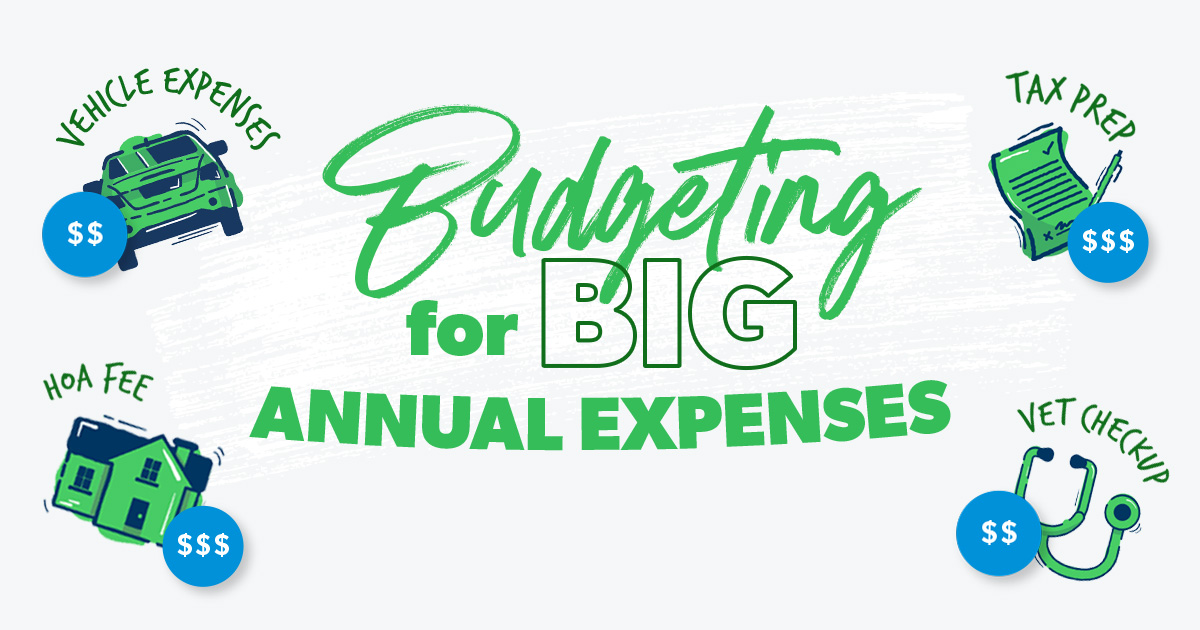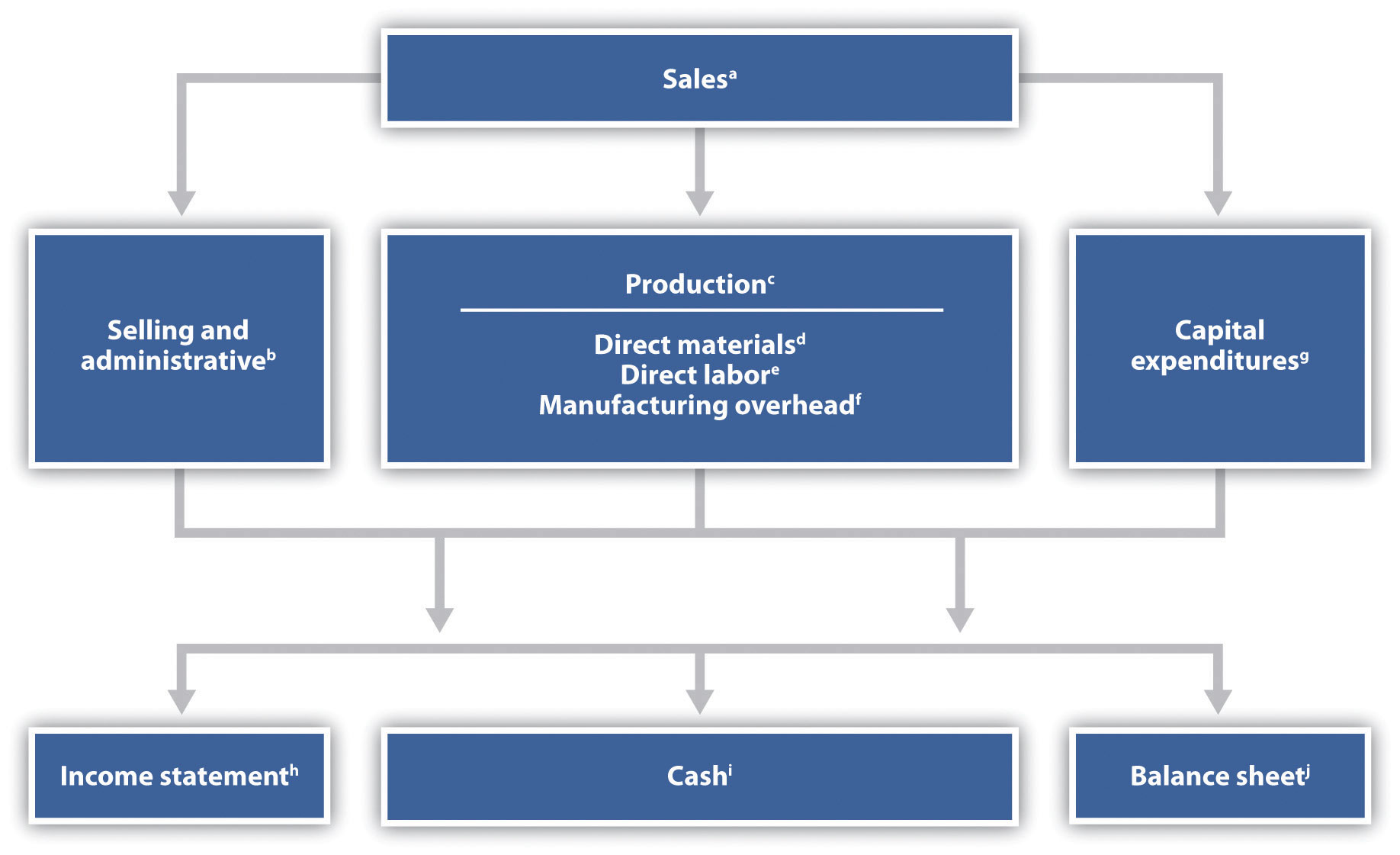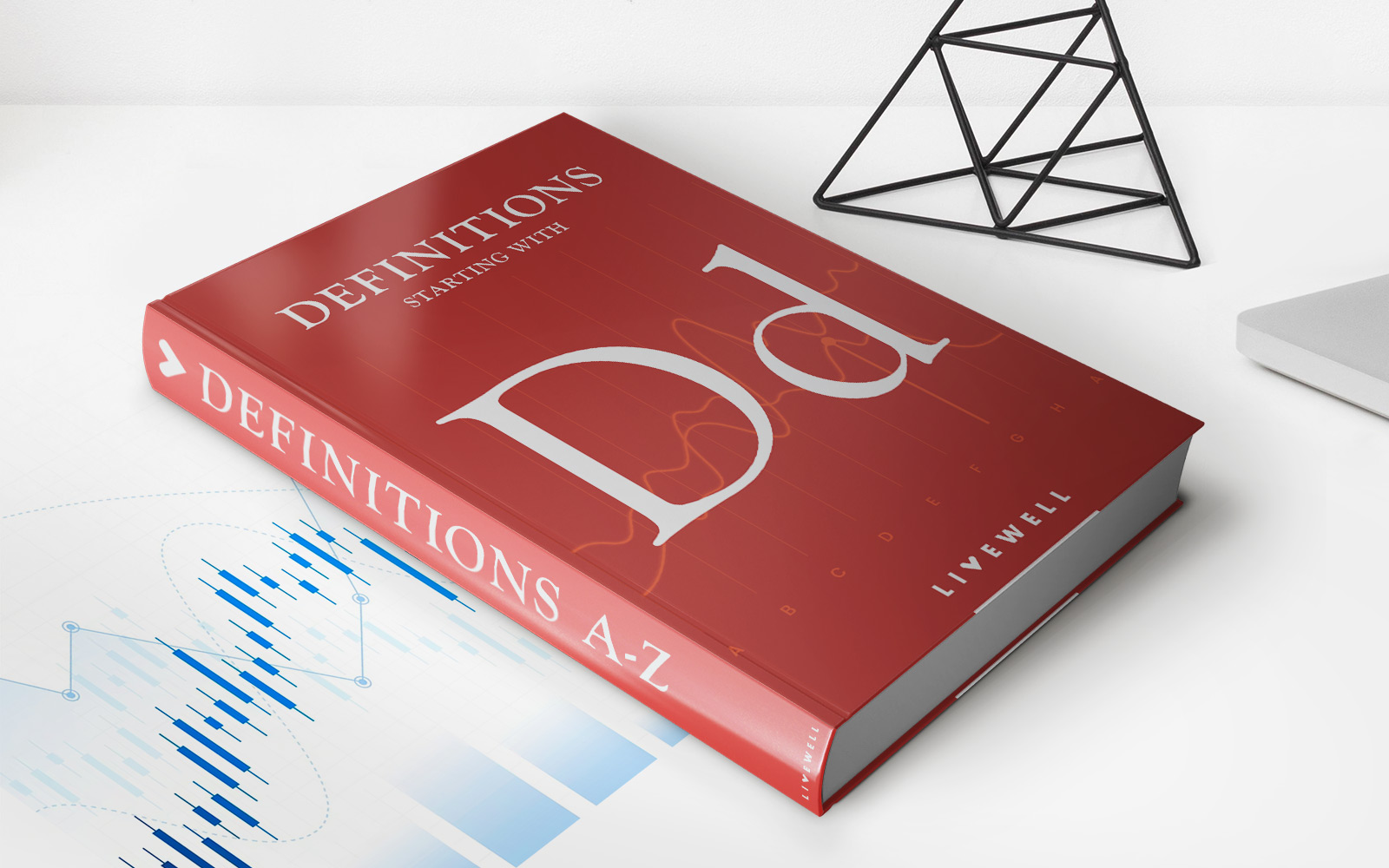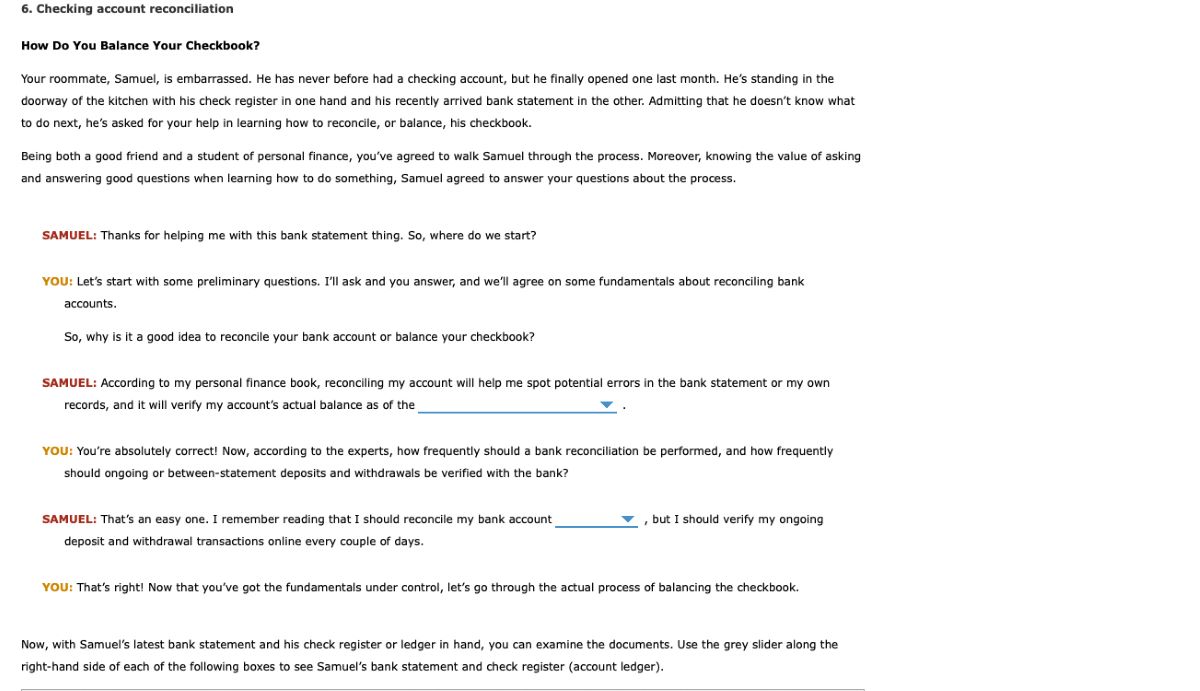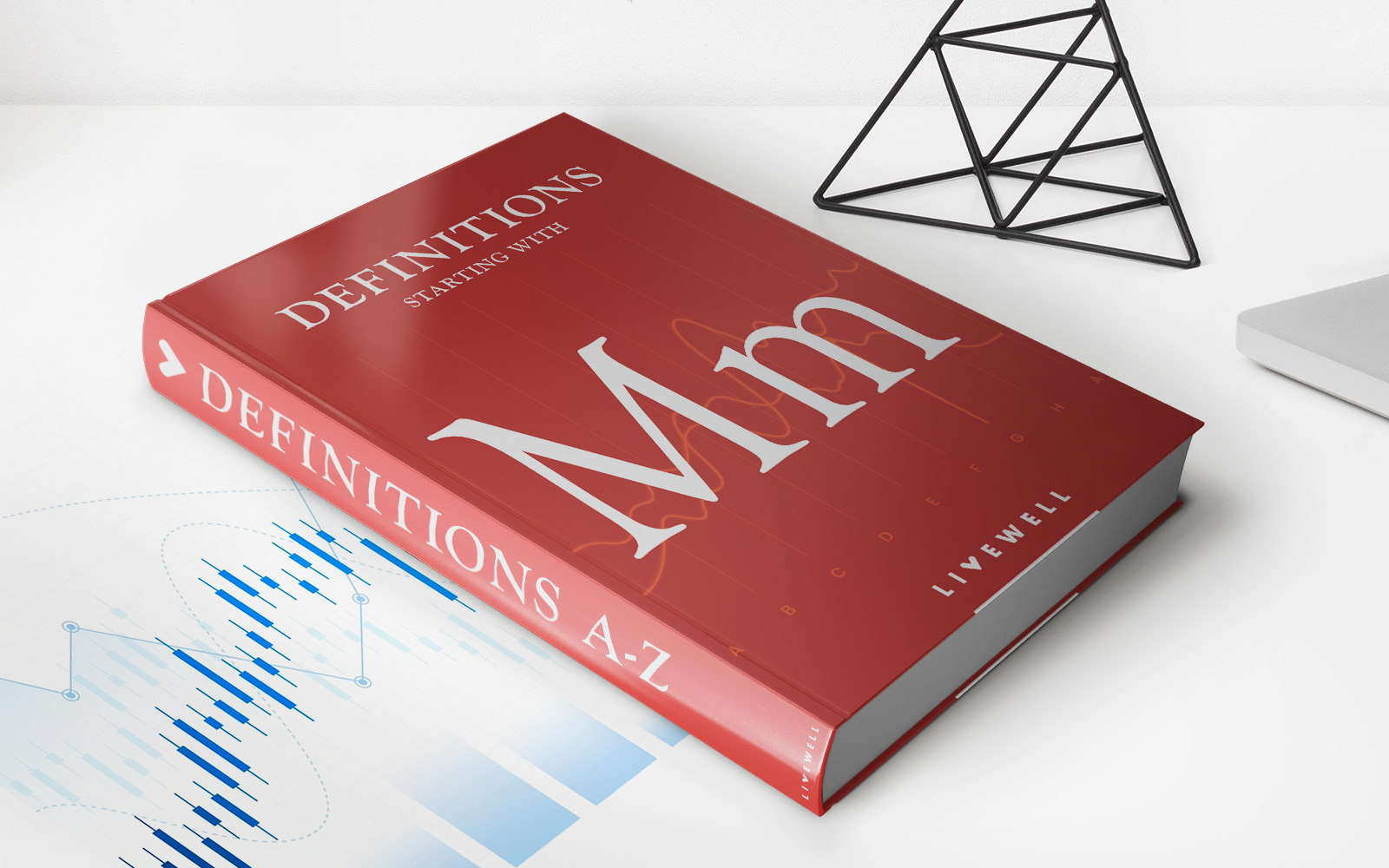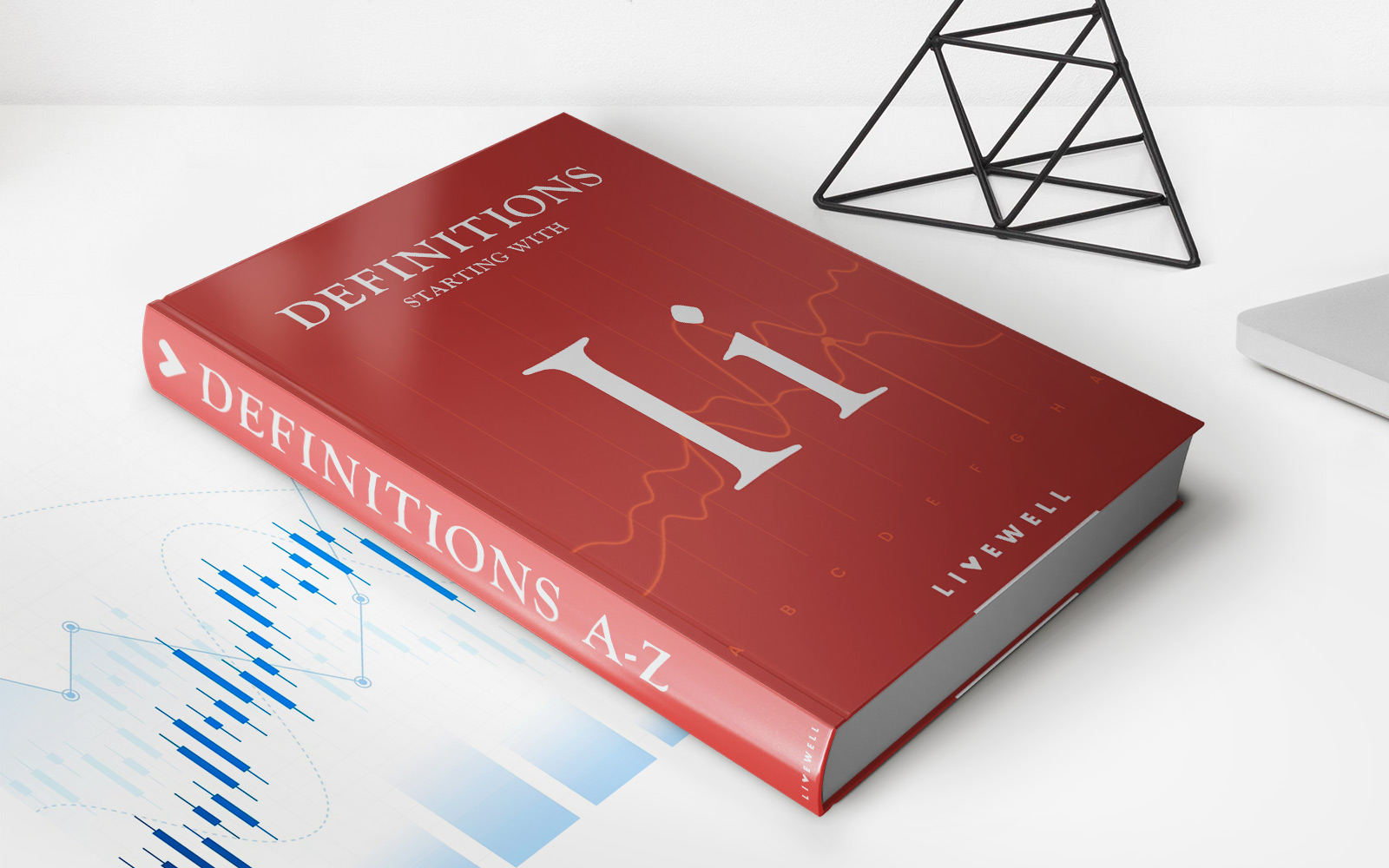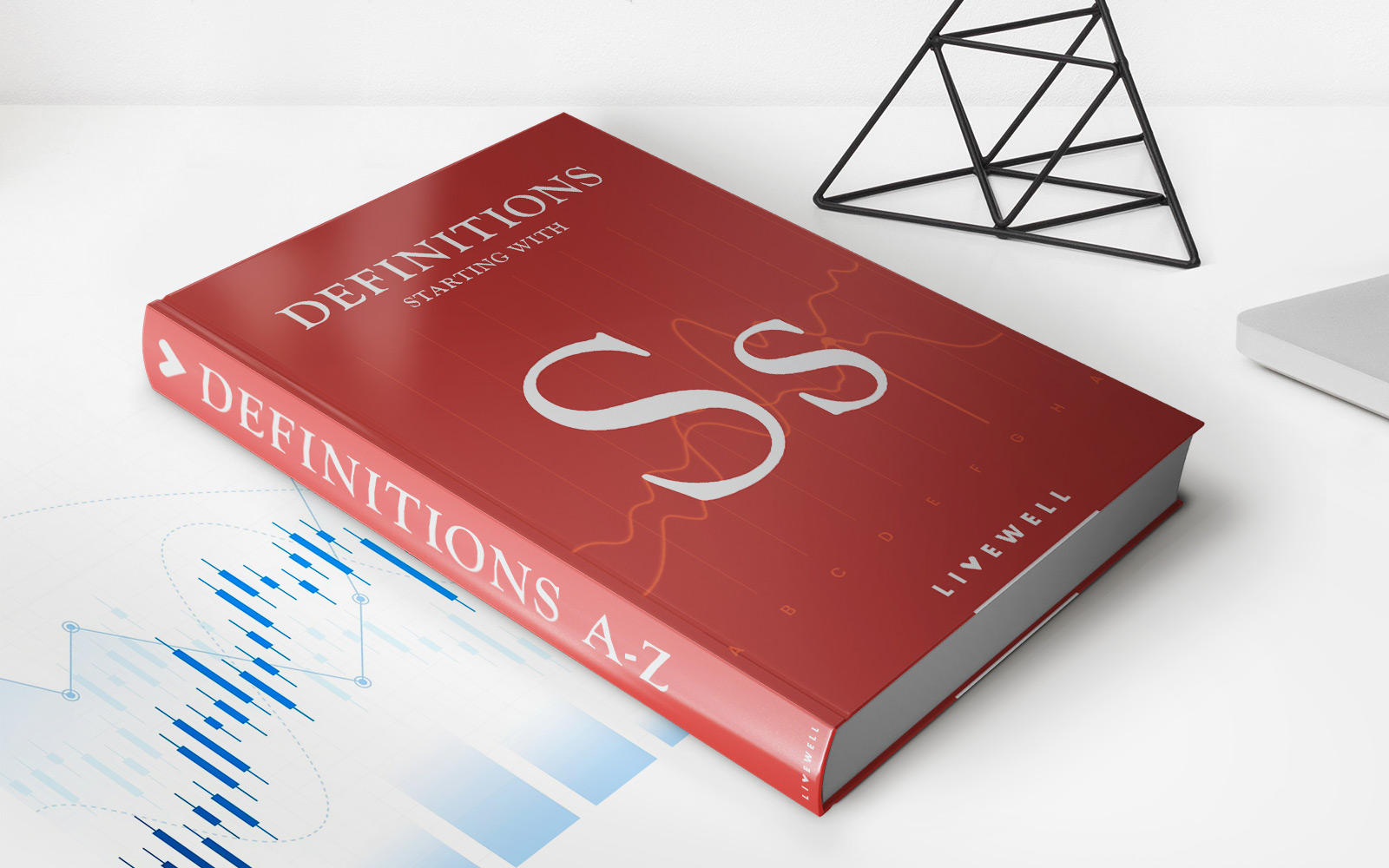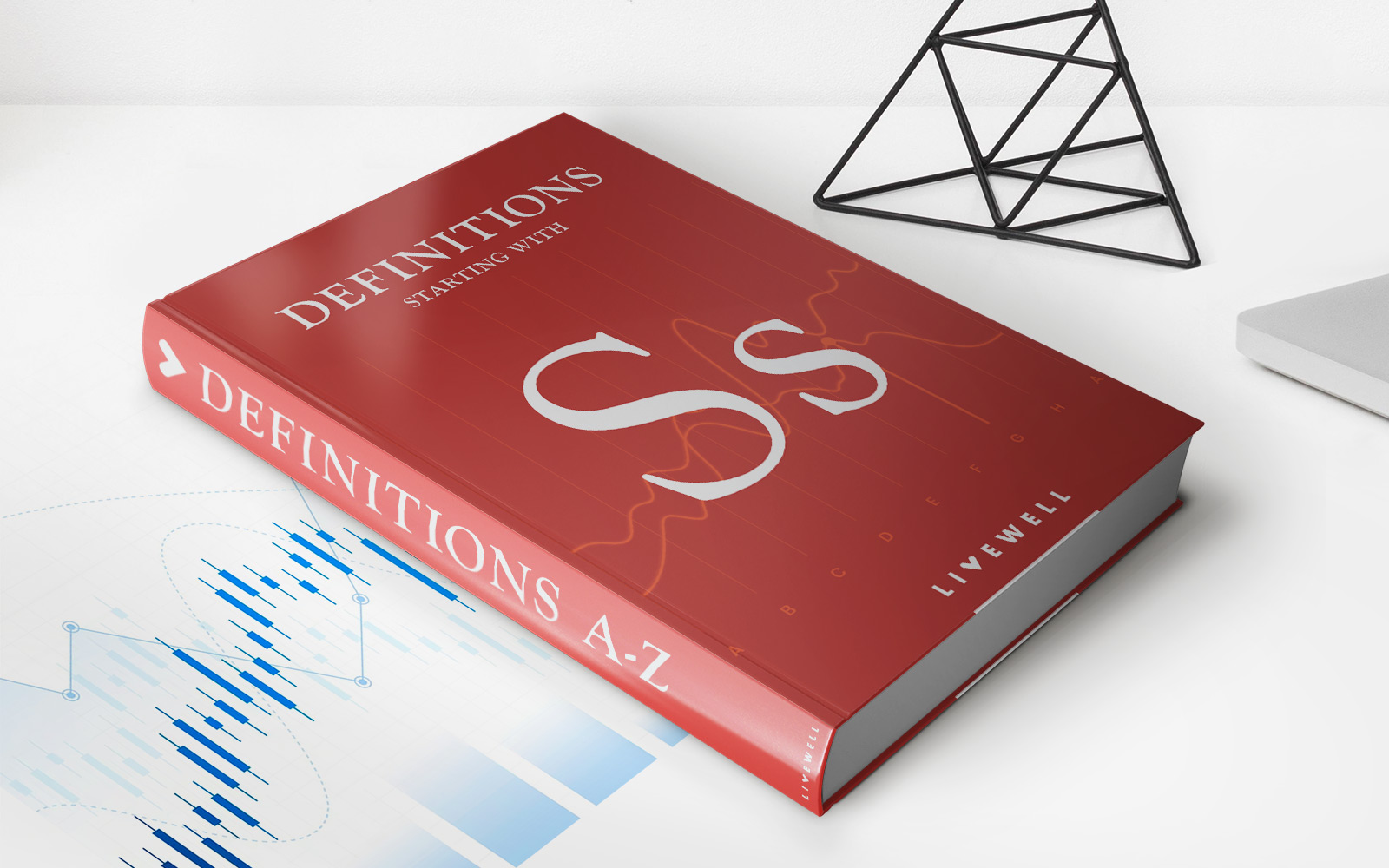Home>Finance>When Should You Look At Recurring Expenses In Your Budgeting Process?


Finance
When Should You Look At Recurring Expenses In Your Budgeting Process?
Modified: December 30, 2023
Looking to improve your finance management? Learn when to analyze recurring expenses in your budgeting process for better financial control!
(Many of the links in this article redirect to a specific reviewed product. Your purchase of these products through affiliate links helps to generate commission for LiveWell, at no extra cost. Learn more)
Table of Contents
Introduction
When it comes to managing your finances effectively, budgeting is an essential tool. A well-planned budget allows you to track and allocate your income to various expenses, savings, and investments. While creating a budget, it’s important to consider all aspects of your financial life, including recurring expenses.
Recurring expenses, as the name suggests, are expenses that occur regularly and are predictable. These can include monthly bills such as rent or mortgage payments, utility bills, insurance premiums, subscription services, and loan repayments. Since recurring expenses are a constant factor in your financial life, it’s crucial to give them due attention in your budgeting process.
By examining and evaluating your recurring expenses, you can gain insight into your spending habits and identify areas where you can make savings or optimize your expenditures. It allows you to make informed decisions about your finances and ensure that your budget aligns with your financial goals.
In this article, we will explore when you should look at recurring expenses in your budgeting process. By understanding these key moments, you can effectively manage your finances and make adjustments when needed to stay on track.
Understanding Recurring Expenses
Before we delve into the importance of evaluating recurring expenses in your budgeting process, let’s first understand what exactly these expenses entail.
Recurring expenses are those regular, ongoing costs that you incur on a periodic basis. They typically occur on a monthly, quarterly, or annual basis and are essential for maintaining your day-to-day life and financial well-being.
Some common examples of recurring expenses include rent or mortgage payments, utility bills (such as electricity, water, and gas), internet and cable bills, insurance premiums, subscription services (like streaming platforms or gym memberships), and loan repayments. These expenses are not one-time or occasional costs; rather, they are part of your regular financial obligations.
It’s important to note that recurring expenses can vary from person to person, depending on individual circumstances and lifestyle choices. For example, if you own a car, you may have additional recurring expenses such as car loan payments, insurance premiums, and maintenance costs.
Understanding the nature of recurring expenses is crucial because it allows you to prioritize and allocate your income effectively. By categorizing and tracking these expenses, you can gain a clear picture of how much you spend on necessities and identify areas where you may be able to cut costs.
Moreover, recurring expenses play a significant role in determining your overall financial health and stability. They make up a substantial portion of your monthly budget and can impact your ability to save, invest, and achieve your financial goals.
Now that we have a solid understanding of what recurring expenses are, let’s explore the importance of integrating them into your budgeting process.
Importance of Budgeting
Budgeting is a foundational financial practice that provides numerous benefits and plays a vital role in achieving long-term financial stability. Here are some key reasons why budgeting is crucial:
1. Financial Awareness: Budgeting allows you to have a clear understanding of your income, expenses, and overall financial situation. It helps you track your spending, identify areas where you may be overspending, and make necessary adjustments to stay within your means.
2. Goal Setting: Budgeting enables you to set specific financial goals and work towards achieving them. Whether it’s saving for a down payment on a house, paying off debt, or building an emergency fund, a budget helps you allocate your resources towards these goals.
3. Expense Control: By actively budgeting and monitoring your expenses, you gain better control over your spending habits. It allows you to identify unnecessary or excessive expenses and make conscious decisions about where your money should be allocated.
4. Debt Reduction: A well-structured budget helps you manage and pay off existing debts more efficiently. By allocating a portion of your income towards debt repayments, you can accelerate your journey to becoming debt-free.
5. Saving and Investing: Budgeting ensures that you allocate a portion of your income towards savings and investments. It helps you build an emergency fund to handle unexpected expenses and contributes to long-term wealth creation through investments.
6. Financial Security: A budget provides a sense of financial security by ensuring that you have enough money allocated for essential expenses such as housing, utilities, and food. It helps you plan for the future and mitigate financial risks.
7. Decision Making: With a budget in place, you can make informed decisions about how to allocate your resources. It allows you to evaluate the financial implications of different choices and prioritize your spending based on your values and goals.
Overall, budgeting is a powerful tool that empowers you to take control of your finances, make smart financial decisions, and work towards a more secure and prosperous future.
When to Evaluate Recurring Expenses
Now that we understand the importance of budgeting and the role recurring expenses play in our financial lives, let’s explore the key moments when it is essential to evaluate these expenses:
- When Creating a New Budget: Whenever you create a new budget, it is crucial to evaluate your recurring expenses. This allows you to start with a clear understanding of your financial obligations and ensures that you allocate your income appropriately. By examining your recurring expenses from the beginning, you can make informed decisions about what is necessary and where adjustments can be made.
- At the Beginning of Each Year: The start of a new year is an excellent time to assess your recurring expenses. Take the opportunity to review your budget and evaluate if any expenses have changed or need to be adjusted. Consider factors such as rent increases, changes in insurance premiums, or new subscription services that may have been added throughout the year.
- After Major Life Changes: Major life changes, such as getting married, having a baby, buying a new home, or changing jobs, can have a significant impact on your recurring expenses. It is essential to reevaluate your budget and make any necessary adjustments to accommodate these changes. This ensures that you are adequately prepared for the financial implications of these life events.
- When Financial Goals Change: As your financial goals evolve, it is important to assess your recurring expenses to align them with your new objectives. For example, if your goal is to save for a dream vacation, you may need to evaluate your discretionary expenses or find ways to cut costs in other areas to free up funds for your desired goal.
- Periodically Throughout the Year: It’s a good practice to regularly review and evaluate your recurring expenses throughout the year. Aim to do this quarterly or semi-annually. This allows you to identify any expenses that may have slipped under the radar or have gone unchecked, ensuring that you stay on top of your budget and make necessary adjustments.
By considering these key moments when evaluating recurring expenses, you can ensure that your budget accurately reflects your financial situation and goals. Regularly reassessing your recurring expenses provides an opportunity to optimize your spending, make necessary adjustments, and stay on track towards financial success.
When Creating a New Budget
One of the most critical times to evaluate recurring expenses is when you are creating a new budget. When you start the budgeting process, it’s essential to have a clear understanding of your financial obligations to ensure that you allocate your income properly.
As you begin crafting your budget, take the time to assess all your recurring expenses. This includes monthly bills such as rent or mortgage payments, utilities, insurance premiums, subscription services, and loan repayments. By evaluating these expenses upfront, you can make informed decisions about what is necessary and where adjustments can be made.
Start by listing all your recurring expenses and their respective amounts. Categorize them into essential expenses (such as housing, utilities, and insurance) and discretionary expenses (such as dining out or entertainment). This categorization will help you prioritize your spending and identify areas where you may be able to cut costs.
Once you have a comprehensive list of your recurring expenses, consider their impact on your budget. Do they consume a large percentage of your monthly income? Are there any expenses that you can negotiate or find alternative options for? Are there any unnecessary subscriptions or services that can be canceled?
By carefully evaluating your recurring expenses during the budget creation process, you can make more informed decisions about how to allocate your income effectively. This ensures that you have a realistic budget that aligns with your financial goals and allows for proper tracking and control of your finances.
Remember, creating a new budget is an iterative process, and it may take some time to refine and optimize your spending. Continuously review your recurring expenses, make adjustments as necessary, and ensure that your budget remains aligned with your financial circumstances and goals.
At the Beginning of Each Year
Another crucial moment to evaluate your recurring expenses is at the beginning of each year. The start of a new year presents an excellent opportunity to reassess your financial situation and make any necessary adjustments to your budget.
During this time, take a close look at all your recurring expenses and evaluate if any changes have occurred. Some common changes to consider include rent increases, changes in insurance premiums, modifications to subscription services, or the addition of new recurring expenses.
Start by reviewing your budget from the previous year. Compare your actual expenses with your budgeted amounts to identify any discrepancies or areas of overspending. This analysis will help you pinpoint which recurring expenses may need to be adjusted or reevaluated.
Next, review each recurring expense and determine if it is still necessary or if there are opportunities to reduce costs. For example, you may discover that you are paying for subscription services that you no longer use or that you can negotiate lower rates for certain bills, such as cable or internet.
Take advantage of this evaluation to explore alternatives for your recurring expenses. For instance, you could research different insurance providers to ensure you are getting the best rates, or you may find a more cost-effective option for your internet or phone service.
By evaluating your recurring expenses at the beginning of each year, you can ensure that your budget remains up-to-date and reflective of any changes in your financial circumstances. This allows you to start the year on a solid foundation, with a budget that aligns with your goals and priorities.
Remember, life is dynamic, and changes can happen at any time. However, starting the year with a fresh evaluation of your recurring expenses helps set a proactive tone for your financial management and ensures that your budget remains accurate and effective throughout the year.
After Major Life Changes
After experiencing a major life change, it is essential to take the time to reevaluate your recurring expenses. Major life events, such as getting married, having a baby, buying a new home, or changing jobs, can have a significant impact on your financial situation and may require adjustments to your budget.
When you undergo a significant life change, your financial priorities and obligations often shift. For example, if you get married, you may need to consider combining finances with your partner and adjusting your budget to accommodate shared expenses. If you have a baby, expenses related to childcare, healthcare, and education will likely emerge.
During these periods of change, take a comprehensive look at your recurring expenses and assess whether they are still aligned with your new circumstances. Consider expenses directly related to the life event, such as mortgage or rent payments, utilities, insurance, and other essentials.
Additionally, be mindful of new recurring expenses that may arise as a result of the life change. For instance, if you have a baby, you may need to budget for diapers, formula, daycare, and other childcare-related expenses. Adjust your budget accordingly to accommodate these new financial obligations.
Major life changes can also prompt a reevaluation of current recurring expenses. For instance, if you change jobs, your commuting costs may change, or you may need to update your healthcare coverage. Take this opportunity to shop around for new options and consider adjustments to your budget based on any changes in income or benefits.
By evaluating your recurring expenses after major life changes, you can ensure that your budget reflects your new reality. It allows you to make necessary adjustments, allocate your income appropriately, and maintain financial stability in the face of significant life events.
Always remember that adapting your budget to major life changes may take time and require ongoing adjustments. Regularly review your expenses, assess their impact on your budget, and make any needed changes to ensure financial alignment with your new circumstances.
When Financial Goals Change
As you progress on your financial journey, your goals may evolve along the way. It’s important to regularly evaluate your recurring expenses when your financial goals change to ensure that your budget aligns with your new objectives.
When your financial goals shift, take the time to reassess your recurring expenses and determine if any adjustments are necessary. For example, if your goal is to save for a down payment on a house, you may need to evaluate your discretionary expenses or find ways to cut costs in other areas to free up funds for your desired goal.
Start by reviewing your current recurring expenses and assess if they are contributing to your new financial goals. Identify expenses that may no longer align with your priorities and consider if they can be reduced or eliminated. This could include expenses such as memberships, subscriptions, or recreational activities that no longer serve your updated goals.
Next, analyze your essential recurring expenses and evaluate if there are opportunities to reduce costs or find more affordable options. For instance, you may be able to find lower insurance premiums or negotiate better rates on utilities and services.
Take the time to explore alternatives and research cost-saving strategies for your recurring expenses. Consider switching providers or adjusting your services to align better with your updated financial goals. By being proactive in seeking cost-effective options, you can ensure that your budget is optimized to support your new objectives.
Remember, adjusting your recurring expenses to accommodate changing financial goals requires careful consideration and planning. It’s important to make informed decisions and prioritize your spending in a way that supports your updated aspirations.
Regularly reviewing and evaluating your recurring expenses as your financial goals change will help you stay on track and ensure that your budget remains aligned with your evolving priorities.
Stay flexible and open to adjustments as you navigate through different stages of your financial journey. By regularly evaluating your recurring expenses, you can make the necessary changes to maintain financial progress towards your new goals.
Periodically Throughout the Year
In addition to the specific moments mentioned earlier, it’s important to periodically evaluate your recurring expenses throughout the year. Regularly reviewing and reassessing these expenses helps ensure that your budget remains accurate and aligned with your financial goals.
Set a schedule to review your recurring expenses on a quarterly or semi-annual basis. This allows you to stay on top of any changes or adjustments that may be necessary. During these evaluations, consider the following:
Identify Potential Savings: Review each recurring expense and look for opportunities to reduce costs. Are there any services or subscriptions you no longer use? Can you negotiate lower rates on your bills? Analyze your expenses and see if there are alternatives or adjustments that can save you money.
Eliminate Unnecessary Expenses: Take a critical look at your recurring expenses and identify any unnecessary items or subscriptions. If you find expenses that no longer serve a purpose or provide value, consider canceling them to free up funds in your budget.
Account for Changing Needs: Life is dynamic, and your needs and priorities may change throughout the year. Assess your recurring expenses to ensure they are still aligned with your current circumstances. For instance, if your commute has changed, evaluate your transportation costs and adjust your budget accordingly.
Check for Changes in Rates or Contracts: Some recurring expenses, such as insurance premiums or utility bills, may have fluctuating rates or contracts that need periodic review. Take the time to compare rates and evaluate your contracts to ensure that you are getting the best value for your money.
Monitor Your Budget vs. Actual Spending: Compare your budgeted recurring expenses to your actual spending regularly. If you notice any significant discrepancies, investigate the cause and make adjustments as needed. This helps you identify areas where you may be overspending or can reallocate funds.
By periodically evaluating your recurring expenses, you can ensure that your budget remains optimized, and your financial goals stay on track. It allows you to make necessary adjustments, identify potential savings, and adapt to any changes in your financial situation throughout the year.
Remember, the purpose of these periodic evaluations is to fine-tune your budget, eliminate wasteful spending, and ensure that your recurring expenses continue to align with your financial objectives. Regularly reviewing these expenses will help you maintain control over your finances and make informed decisions to support your overall financial well-being.
Conclusion
Evaluating recurring expenses is a crucial aspect of effective budgeting and financial management. By regularly assessing these expenses, you can gain a clear understanding of your financial obligations, track your spending, and make informed decisions to achieve your financial goals.
There are several key moments when it is essential to evaluate your recurring expenses. These include when creating a new budget, at the beginning of each year, after major life changes, when financial goals change, and periodically throughout the year.
When creating a new budget, evaluating your recurring expenses allows you to start with a clear understanding of your financial obligations and make informed decisions about what is necessary. At the beginning of each year, assessing your recurring expenses ensures that your budget reflects any changes or adjustments that may have occurred.
After major life changes, reviewing your recurring expenses helps you realign your budget with your new circumstances. When your financial goals change, evaluating these expenses helps ensure that your budget is adjusted to support your updated objectives. Lastly, periodically assessing recurring expenses throughout the year helps you stay on top of any adjustments or savings opportunities.
By consistently evaluating your recurring expenses, you can optimize your budget, identify potential savings, and ensure that your financial plans remain on track. Regularly reassessing these expenses allows for adaptability, cost optimization, and financial stability in the face of changing circumstances.
In conclusion, recurring expenses are an integral part of your financial life, and evaluating them is essential to maintain control over your finances and work towards your financial goals. By incorporating these evaluations into your budgeting process, you can make informed decisions, allocate your income effectively, and pave the way for a more secure and prosperous financial future.


